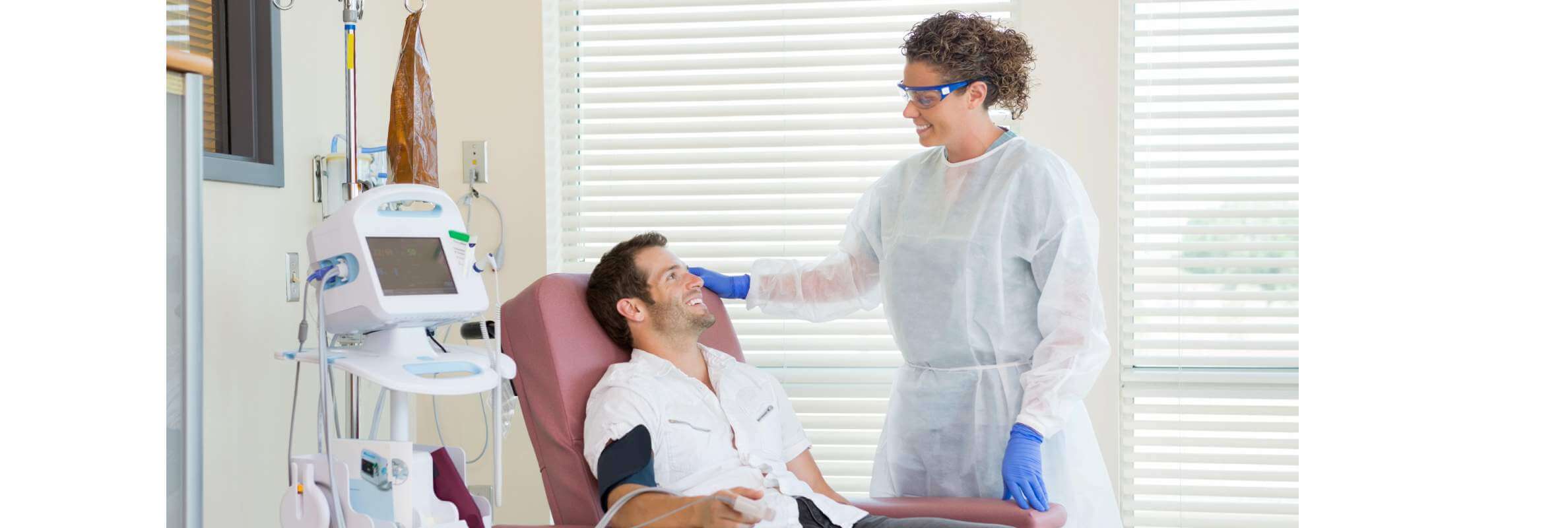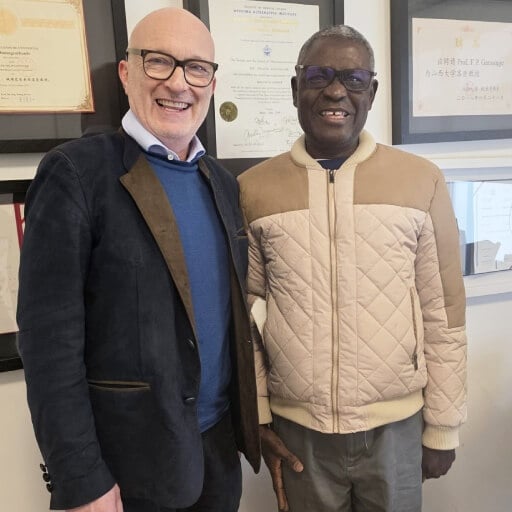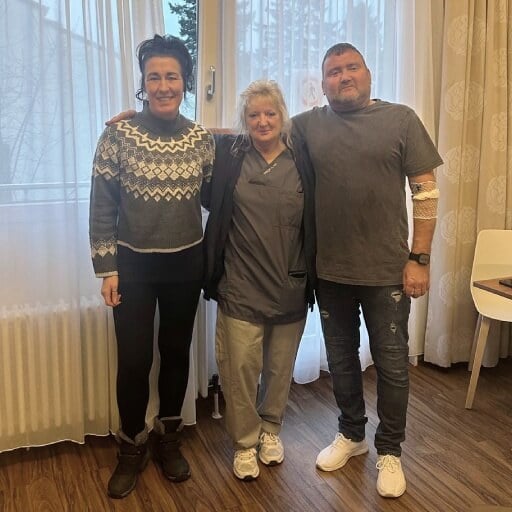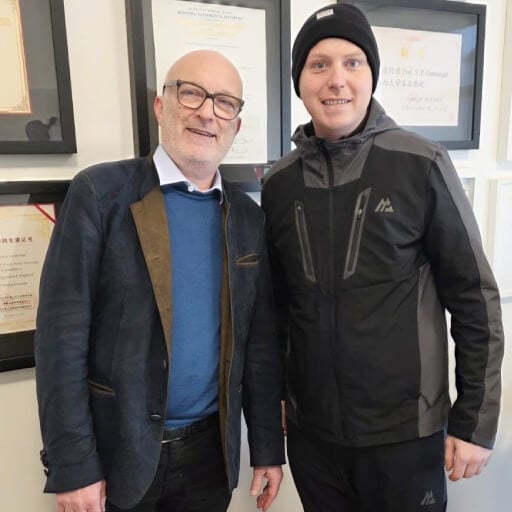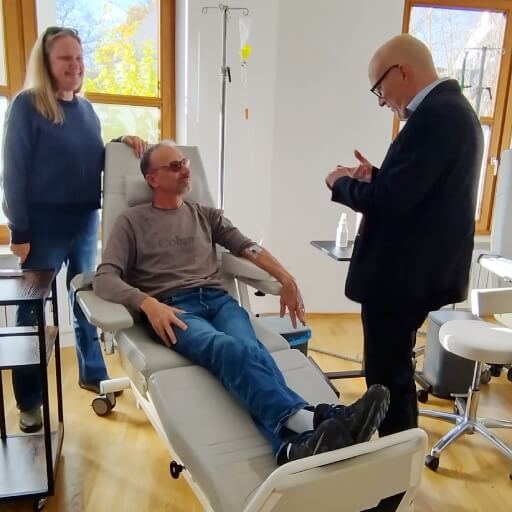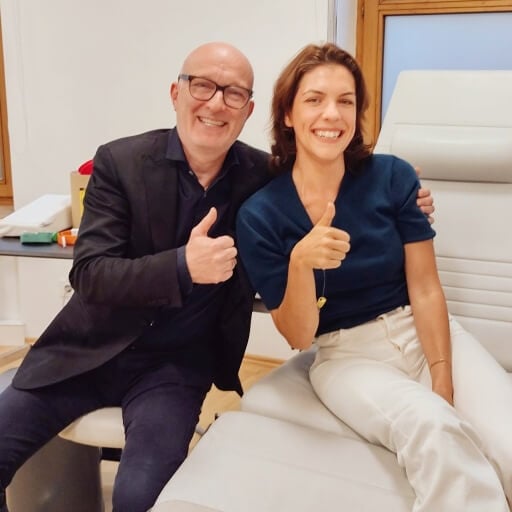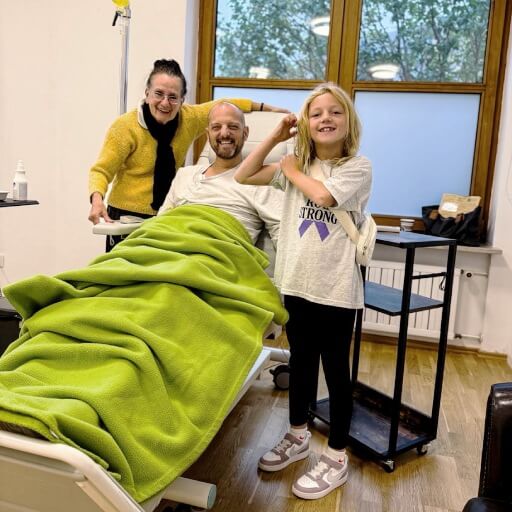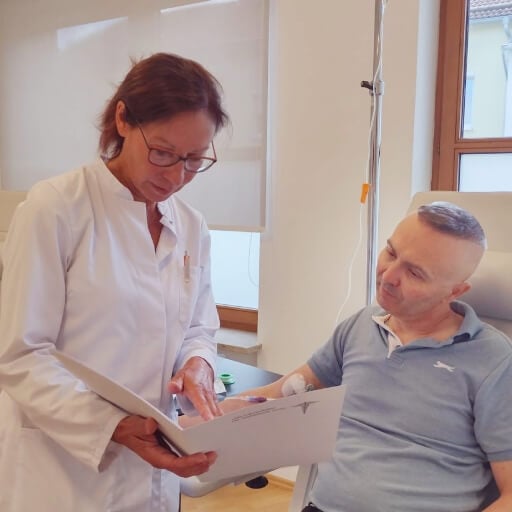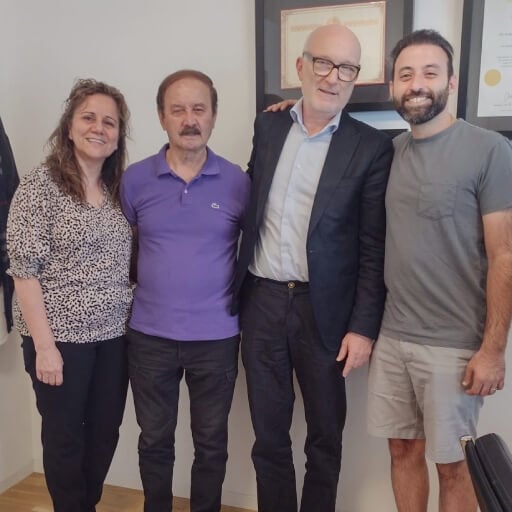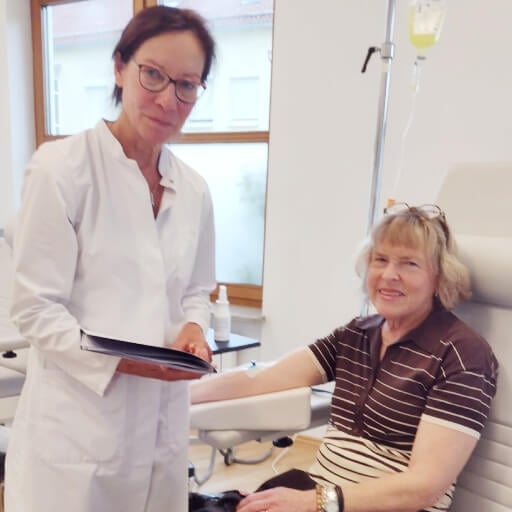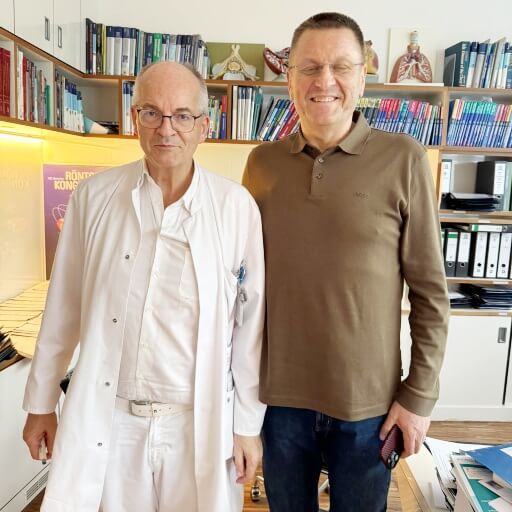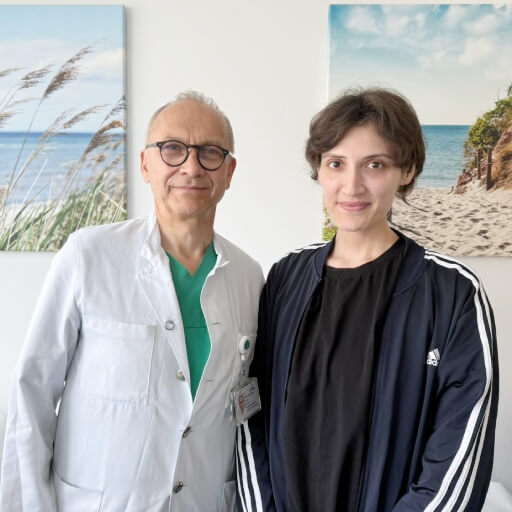Cancer remains one of the most daunting health challenges of our time. In 2022 alone, nearly 20 million new cancer cases were diagnosed worldwide, and almost 9.7 million people tragically lost their lives to the disease [1]. These figures underscore the escalating burden of cancer - and the glaring disparities in access to quality care. As many countries struggle to provide timely diagnosis and effective treatment, more patients are exploring cancer treatment abroad, seeking hope, cutting-edge technology, and better outcomes beyond their borders.
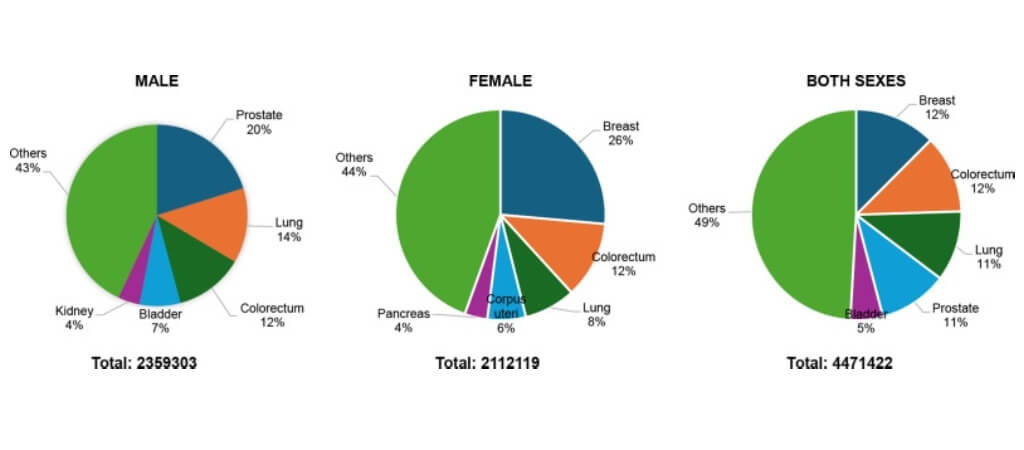
Why Cancer Treatment Abroad is Changing Modern Oncology
Choosing cancer treatment abroad is no longer a rare decision but a growing trend among medical tourists who want to treat cancer with advanced options unavailable in their home countries. While many countries deliver high-quality cancer care, access to innovative therapies, cutting-edge technologies, and experienced specialists often varies dramatically. For patients with complex or advanced disease, treatment abroad offers practical advantages, especially in the best countries for oncology care, such as Germany and other European clinics.
World-Class Medical Expertise
German oncology is internationally recognized for its high standards of care. Local oncologists undergo 8–10 years of rigorous training and actively contribute to global research projects. The country also collaborates with top institutions, including MD Anderson Cancer Center and Memorial Sloan Kettering. Thanks to this expertise, international patients receive advanced cancer treatment abroad with excellent outcomes. Importantly, the cost of medical treatment in Germany is lower than in the U.S. or U.K., and comprehensive treatment plans—including surgery, chemotherapy, and radiotherapy—are available at affordable prices.
The Role of Accurate Cancer Diagnosis
Successful medical treatment always begins with an accurate cancer diagnosis. In Germany, patients have access to innovative technologies that allow doctors to detect the disease at an early stage and define the most suitable treatment plan. Key methods include:
- Imaging techniques (MRI, CT, PET-CT) to determine tumor location and stage
- Molecular profiling to reveal mutations driving the cancer
- Genetic testing for hereditary risk assessment
- Laboratory diagnostics to track therapy response and overall health
Such precision helps specialists select optimal treatment options rather than relying on standard protocols. Unlike many other countries, German oncology integrates all diagnostic data into a single system, allowing medical tourists to receive faster results and immediate transition to therapy. This structured process reduces delays, prevents unnecessary procedures, and increases the chances of long-term success.
Higher Success Rates for Complex Conditions
German hospitals are known for their outstanding results in cancer care. Survival rates are among the highest in European countries: for example, 86% for breast cancer treatment (compared to an 82% EU average) and up to 94% for early prostate cancer. Even when it comes to advanced cancers, German centers achieve results 15–20% better than those in many different countries. This success is built on multidisciplinary tumor boards that carefully analyze every cancer diagnosis and design individualized treatment plans combining surgery, targeted therapy, chemotherapy, and radiation therapy. For many patients, full recovery is confirmed if no tumor recurrence occurs within five years.
Access to Innovative Treatment Options for Cancer Treatment Abroad
When considering cancer treatment abroad, one of the most persuasive reasons for medical tourists is access to innovative methods that go far beyond conventional surgery, chemotherapy, and radiation therapy. German oncology has become a global leader in integrating advanced medical care with cutting-edge cancer technology, offering therapies that directly target cancer cells while preserving healthy tissues. The advanced options significantly expand the treatment plan for cancer patients and increase survival rates.
Surgery and Minimally Invasive Options for Cancer Treatment Abroad
Surgery remains a cornerstone of medical treatment abroad. German hospitals perform a full spectrum of procedures, from tumor resection to complex reconstructions, using minimally invasive techniques where possible. Combining surgery with chemotherapy, radiation therapy, and advanced therapies provides optimal outcomes. Across Germany, surgery is integrated into multidisciplinary plans to maximize patient recovery.
Radiotherapy: Advanced Precision to Treat Cancer
Radiotherapy plays a central role in modern cancer treatment abroad. German hospitals and other top European clinics use cutting-edge machines that allow doctors to target tumors with extreme precision, sparing healthy tissues and minimizing side effects. These technologies enable oncologists to treat cancer effectively even in complex or advanced cases.
Furthermore, the cost of radiotherapy in Germany and other best countries remains competitive, offering affordable prices compared to other countries without compromising quality and private treatment. For medical tourists, this combination of advanced technology, individualized care, and reasonable cost makes radiotherapy a highly attractive option for comprehensive cancer management.
HIPEC (Hyperthermic Intraperitoneal Chemotherapy) for Cancer Treatment Abroad
HIPEC is a specialized technique for patients with abdominal cancers, such as peritoneal carcinomatosis, advanced colorectal cancer, or ovarian tumors. After surgical removal of visible tumors, heated chemotherapy is circulated inside the abdominal cavity, destroying microscopic cancer cells left behind.
The combination of heat and concentrated chemotherapy enhances the effectiveness of the drugs, reduces systemic toxicity, and improves outcomes for patients who previously had very limited treatment options.
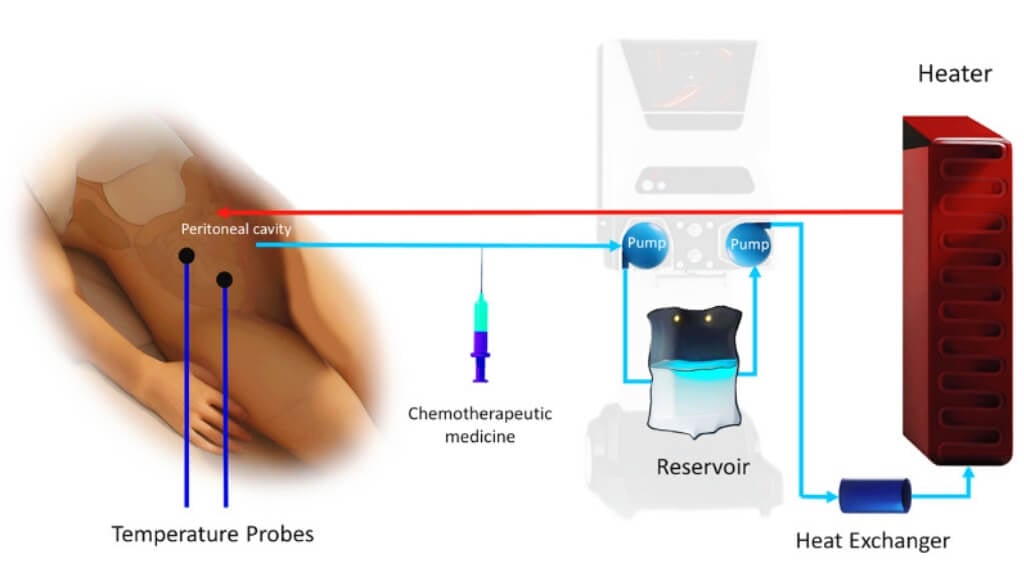
TACE (Transarterial Chemoembolization) for Cancer Treatment Abroad
TACE is widely used for liver tumors and metastatic disease. The procedure involves injecting chemotherapy directly into the arteries feeding the tumor, followed by embolization to block the blood supply. This double mechanism both starves the tumor and traps the drug inside, allowing higher doses to target cancer cells locally without affecting the whole body. In Germany, TACE has become part of advanced cancer care programs, often combined with other minimally invasive techniques for better long-term control.
Dendritic Cell Therapy for Cancer Treatment Abroad
Dendritic cell vaccines represent one of the most exciting breakthroughs in medical oncology. These immune-based therapies are designed to "teach" the patient’s immune system to recognize and destroy cancer cells.
The concept was so groundbreaking that Canadian immunologist Ralph Steinman was awarded the Nobel Prize in Physiology or Medicine in 2011 for his discoveries related to dendritic cells [5]. Today, German clinics are among the few in Europe where this therapy has been translated into practice, offering international patients access to highly personalized cancer treatment that strengthens the body’s natural defense mechanisms.
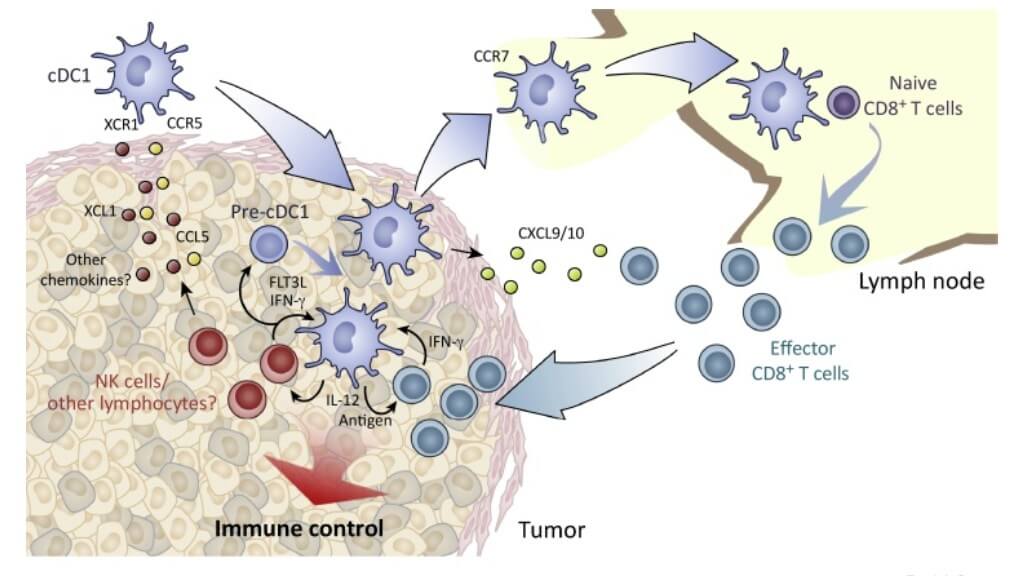
Targeted Therapy for Cancer Treatment Abroad
Unlike traditional chemotherapy, which affects both healthy and malignant cells, targeted therapy focuses on specific molecular structures or mutations within cancer cells. These drugs can block tumor growth signals, inhibit blood vessel formation, or trigger apoptosis (cell death) selectively in malignant tissue. For several cancer types—including breast cancer, lung cancer, and pancreatic tumors—targeted therapy is now part of standard cancer treatment in Germany. The precision of this approach allows doctors to tailor each treatment plan to the genetic profile of the disease, giving patients a better chance at long-term remission.
| Therapy Type | 2-Year Survival Rate | Response Rate | Duration | Side Effects |
|---|---|---|---|---|
| Standard Treatments | ~55-70% for early stages ~30% for advanced stages | ~40-60% | Several weeks to months | Moderate to severe (fatigue, nausea, infertility, bowel/bladder issues) |
| Innovative Methods | ~60-75% in select advanced/refractory cases | 45-65% | Multiple sessions are possible | Mild (fever, localized inflammation, flu-like symptoms) |
*Based on Booking Health clinical data and published outcomes. Actual results may vary depending on patient condition and treatment protocol.
Life After Cancer Treatment Abroad
Сancer treatment abroad, especially in Germany, is valued not only for advanced therapies but also for the strong emphasis on recovery. German hospitals provide long-term cancer care, ensuring that once the primary therapy—whether surgery, chemotherapy, or immunotherapy - is completed, patients continue receiving support. The goal is to help them regain strength, protect their health, and lower the chance of recurrence.
Follow-Up Care
German oncology centers create structured follow-up schedules tailored to each cancer diagnosis, stage, and therapy. These plans often involve:
- Regular blood tests and imaging to detect potential tumor relapse early
- Scheduled visits with oncologists and related specialists in medical oncology
- Personalized monitoring programs depending on the cancer type
Patients receive clear guidance on which check-ups are required, how often they should take place, and what warning signs must be addressed immediately. Along with medical supervision, follow-up cancer care also includes psychological support, counseling, and participation in groups where cancer patients can share experiences with others.
Rehabilitation Programs
Rehabilitation is a key part of recovery after cancer treatment in Germany. Depending on the patient’s condition, programs can last weeks or months and aim to restore strength and return to everyday life. Common services include:
- Physiotherapy and exercise programs to regain mobility
- Occupational therapy to make daily activities manageable
- Nutritional counseling to support the immune system and promote healing
- Psychological care to overcome stress and anxiety
- Social services to help reintegrate into work and family life
Specialized rehabilitation centers also provide targeted recovery for several cancer types, such as breast, prostate, and gastrointestinal cancers, tailoring programs to each patient group.
By combining structured follow-up with comprehensive rehabilitation, German hospitals guarantee that patients benefit not only from effective cancer treatment but also from improved long-term quality of life.
A Medical Journey: Every Step of the Way With Booking Health
Finding the best treatment strategy for your clinical situation is a challenging task. Being already exhausted from multiple treatment sessions, having consulted numerous specialists, and having tried various therapeutic interventions, you may be lost in all the information given by the doctors. In such a situation, it is easy to choose a first-hand option or to follow standardized therapeutic protocols with a long list of adverse effects instead of selecting highly specialized innovative treatment options.
To make an informed choice and get a personalized cancer management plan, which will be tailored to your specific clinical situation, consult medical experts at Booking Health. Being at the forefront of offering the latest medical innovations for already 12 years, Booking Health possesses solid expertise in creating complex management programs in each individual case. As a reputable company, Booking Health offers personalized treatment plans with direct clinic booking and full support at every stage, from organizational processes to assistance during treatment. We provide:
- Assessment and analysis of medical reports
- Development of the medical care program
- Selection of a suitable treatment location
- Preparation of medical documents and forwarding to a suitable clinic
- Preparatory consultations with clinicians for the development of medical care programs
- Expert advice during the hospital stay
- Follow-up care after the patient returns to their native country after completing the medical care program
- Taking care of formalities as part of the preparation for the medical care program
- Coordination and organization of the patient's stay in a foreign country
- Assistance with visas and tickets
- A personal coordinator and interpreter with 24/7 support
- Transparent budgeting with no hidden costs
Health is an invaluable aspect of our lives. Delegating management of something so fragile yet precious should be done only to experts with proven experience and a reputation. Booking Health is a trustworthy partner who assists you in pursuing stronger health and a better quality of life. Contact our medical consultant to learn more about the possibilities of personalized treatment with innovative methods for different types of cancer with leading specialists in this field.
Modern Cancer Treatment: Patient Journeys with Booking Health
FAQ: Cancer Treatment Abroad
Send request for treatmentThis opportunity gives access to advanced options and specialized hospitals abroad. International Cancer Care in Germany and European clinics offers experienced doctors, modern technology, and innovative therapies, improving treatment outcomes and quality of life.
Booking Health support helps with treatment coordination, appointments in global clinics, travel, and medical documents. Their services make treatment abroad planning easy and reliable, ensuring access to top European clinics in Germany and specialized hospitals abroad.
Patients can access advanced options such as immunotherapy, targeted therapy, precision medicine, and minimally invasive surgery. Specialized hospitals abroad, including top European clinics in Germany, provide world-class international cancer care.
Treatment abroad planning involves choosing global clinics, consulting experts, and arranging logistics. Booking Health support coordinates medical records, appointments, travel, and follow-up, ensuring smooth and effective international cancer care.
Germany and other European clinics are top choices for international cancer care. Patients also visit specialized hospitals abroad in Switzerland, Israel, and South Korea for advanced options and world-class oncology expertise.
These are surgical interventions, chemotherapy, and radiation therapy that are used as the established treatment basis. Immunotherapy, targeted therapy, minimally invasive procedures, and precision medicine approaches are actively used in hospitals focused on more novel treatment schemes.
Specific symptoms depend on the suspected cancer type: patients may complain of weight loss, fatigue, bleeding, changes in bowel or bladder habits, persistent pain, local lumps or swelling, etc.
When compared to the USA or UK, treatment abroad often costs up to 30% less in countries like Germany. For example, proton therapy in Germany may cost around €84,000‑€87,000, while similar treatments in the USA are significantly more expensive and virtually can’t be afforded by self-payers.
In Germany patients can access highly specialized cancer centers (here treatments follow international oncology standards). Patients benefit from experienced specialists and integrated supportive care programs.
Choose treatment abroad and you will be sure to get the best results!
Authors:
This article was edited by medical experts, board-certified doctors Dr. Nadezhda Ivanisova, and Dr. Bohdan Mykhalniuk. For the treatment of the conditions referred to in the article, you must consult a doctor; the information in the article is not intended for self-medication!
Our editorial policy, which details our commitment to accuracy and transparency, is available here. Click this link to review our policies.
Sources:
[1] American Cancer Society. Journals. Global cancer statistics 2022: GLOBOCAN estimates of incidence and mortality worldwide for 36 cancers in 185 countries. https://acsjournals.onlinelibrary.wiley.com/doi/10.3322/caac.21834
[2] Mohammed Elmadani, Peter Onchuru Mokaya, Ahmed A A Omer et al. Cancer burden in Europe: a systematic analysis of the GLOBOCAN database (2022). BMC Cancer. 2025 Mar 12;25:447. doi: 10.1186/s12885-025-13862-1. [DOI] [PMC free article]
[3] Frontiers in Surgery. Challenges following CRS and HIPEC surgery in cancer patients with peritoneal metastasis: a comprehensive review of clinical outcomes. https://www.frontiersin.org/journals/surgery/articles/10.3389/fsurg.2024.1498529/full
[4] Jan P Böttcher, Caetano Reis e Sousa. The Role of Type 1 Conventional Dendritic Cells in Cancer Immunity. Trends Cancer. 2018 Nov;4(11):784–792. doi: 10.1016/j.trecan.2018.09.001. [DOI] [PMC free article]
[5] Nobel Prize. The Nobel Prize in Physiology or Medicine 2011 – Ralph Steinman. https://www.nobelprize.org/prizes/medicine/2011/steinman/facts/
Read:
New Effective Treatments for Stage 4 Cancer: Innovations in Oncology
Dendritic cell therapy in cancer treatment in Germany - Vaccination against cancer
Top 10 Leading Oncology Hospitals for Cancer Treatment in Germany
Article menu:
Don't know where to start?
Contact Booking Health